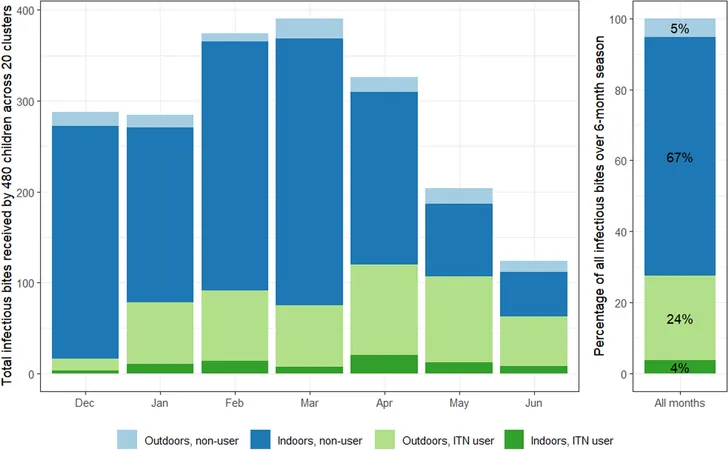
Surprising Study Reveals People with Dyslexia and Dyscalculia May Have Unique Strengths: Less Bias in Society!
2024-10-09
Author: Nur
Overview of the Study
A groundbreaking new study has cast a fresh light on how dyslexia and dyscalculia, typically associated with difficulties in literacy and numeracy, may confer unexpected advantages, particularly in the realm of social bias. Researchers have discovered that individuals with these learning conditions show a significantly reduced propensity for bias against others based on factors like disability, race, or gender.
Research Methodology
The research, carried out by Dr. Gray Atherton and Dr. Liam Cross from the University of Plymouth's School of Psychology, delved into the Implicit Association Test (IAT) database amassed by Project Implicit. This analysis included responses from over 460,000 participants, with specific focus on nearly 15,000 individuals diagnosed with dyslexia and around 1,700 with dyscalculia.
Key Findings
The study's findings reveal that those with dyslexia exhibit less implicit bias compared to those without disabilities, while individuals with dyscalculia demonstrated even lower levels of bias, highlighting a fascinating distinction.
Expert Insights
Dr. Cross elaborated on the implications of these findings by stating, "For the majority of people, recognizing and categorizing social groups is a natural part of our cognitive development, which often leads to ingrained biases. Our investigation suggests that those with specific learning disabilities may not acquire such biases, which is a positive outcome for both individuals and society at large."
Broader Implications
Published in the journal Neurodiversity, this study is part of a broader research initiative aimed at understanding the experiences of people with various neurodiverse conditions. Recent projects have also investigated the benefits of board games and role-playing games for individuals on the autism spectrum, further expanding the conversation around the strengths and capabilities of neurodiverse populations.
Rethinking Perceptions
This new angle on dyslexia and dyscalculia not only challenges prevailing perceptions of these conditions as solely negative but also presents an opportunity to rethink how society views and supports individuals with learning differences. This research opens up a discussion about the broader implications of bias reduction in social interactions, suggesting that fostering more inclusive perspectives can benefit everyone.
Conclusion and Future Directions
So, could embracing neurodiversity lead to a more equitable society? The evidence is mounting. Stay tuned for more insights into this fascinating topic!




 Brasil (PT)
Brasil (PT)
 Canada (EN)
Canada (EN)
 Chile (ES)
Chile (ES)
 España (ES)
España (ES)
 France (FR)
France (FR)
 Hong Kong (EN)
Hong Kong (EN)
 Italia (IT)
Italia (IT)
 日本 (JA)
日本 (JA)
 Magyarország (HU)
Magyarország (HU)
 Norge (NO)
Norge (NO)
 Polska (PL)
Polska (PL)
 Schweiz (DE)
Schweiz (DE)
 Singapore (EN)
Singapore (EN)
 Sverige (SV)
Sverige (SV)
 Suomi (FI)
Suomi (FI)
 Türkiye (TR)
Türkiye (TR)